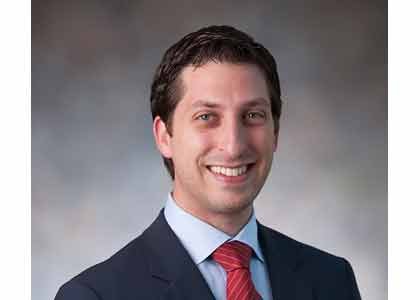Testicular Cancer Awareness Month, April, is almost over, but that doesn’t mean men should forget about testicular cancer prevention.
Testicular cancer is a relatively rare cancer as it accounts for about one percent of all cancers; however, it is the most common cancer found in young men (ages 15-34 years old). Despite a higher rate of testicular cancer diagnoses in the past few decades, the death rate has significantly fallen due to improvements in treatment. As a result of our great success in treating testicular cancer, it is sometimes a forgotten or overlooked disease in terms of its importance.
Thus, it is of the utmost and critical importance that we spread the word about testicular cancer. In particular, the area where we can improve the most is that of detection. You cannot treat what you don’t know exists. Moreover, the earlier you diagnose and treat this disease, the less likely it will spread and the easier it is to treat. Therefore, we must not ignore the importance of screening for testicular cancer.
Currently, there is no standard or routine screening test used for the early detection of testicular cancer. Physicians are reliant upon patient reporting to help make a diagnosis, as the majority of these cancers, are first found by the men themselves, either by chance or by self-exam. The first symptom is usually a lump, nodule, or mass on the testicle. Alternatively, the patient might note enlarged or swollen testicles. Occasionally, pain is the presenting symptom, which may or may not be related to the disease; either way, these symptoms prompt additional investigation with either your primary care physician, or preferably a urologist.
Despite the fact that no standards exist, most physicians agree that a monthly self-testicular exam should be performed after the onset of puberty. The exam should be done during or after bathing when the scrotum is relaxed. The more familiar a person is with their body, the better they can assess what feels abnormal or different. Although cancer is a major concern, more often than not these symptoms are related to infection, injury or other causes. Nevertheless, it is important to see a physician to treat any other underlying or serious conditions causing these symptoms.
Unfortunately, many young men aren’t seen by a physician for one reason or another until they have advanced stage disease. Some men are in denial that there is a problem. Others are
embarrassed or fearful about their problems, whether it be concern over discussing or exposing their genitals to a physician, concern over loss of sexual prowess (impotence or libido), or even concern over sterility. Some even delay seeing physicians for fear of ridicule or dismissal from physicians. Additionally, in today’s environment, there is the ever-growing fear of being unable to afford care because of either not having insurance or not having the funds to pay for deductibles or co-insurances.
The onus is on us as a community to spread the word and educate young men about the dangers of testicular cancer. But we must also calm their fears and help them understand the truths. Moreover, just because this is a disease of young men, does not mean that it does not affect the women in their lives. One major issue, for example, is the potential for infertility after losing a testicle and potentially receiving treatment with either radiation and/or chemotherapy. Thus, the implications of this diagnosis involve not only the patient but also their loved ones.
The bottom line is that we need people to be more aware of testicular cancer. We need young men to be doing monthly self testicular exams to feel for any changes in their scrotum, including lumps and bumps, masses, pain or tenderness, or anything else unusual at all. If there are any concerns, we need families to be supportive and encouraging of men coming to see their physician for further evaluation. We don’t want these young men losing their opportunity to be cured. We need them to come in before it’s too late. They have too much at stake. When in doubt get it checked out, if even for only peace of mind. The ultimate responsibility for your health is yours and yours alone.
To learn more about testicular cancer, including how to do a self-exam, visit: www.menshealthnetwork.org/library/tca.pdf.
Rian J. Dickstein, M.D. is a urologist who completed a fellowship in urologic oncology at the world-renowned MD Anderson Cancer Center in Houston, Texas. Currently, he is a practicing urologist at Chesapeake Urology Associates and is an Assistant Clinical Professor in Urology at the University of Maryland School of Medicine.
